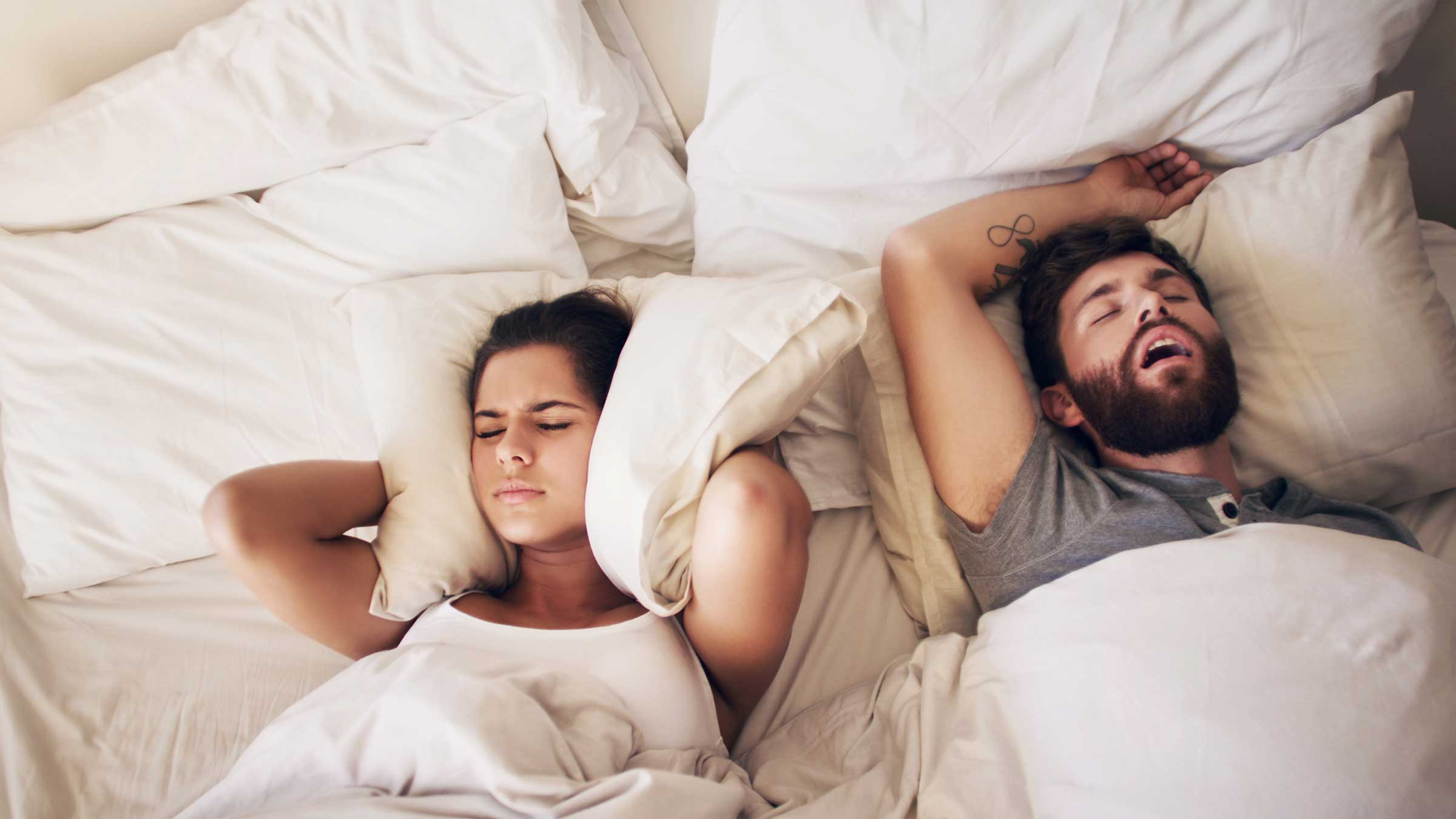
About 25% of people in the U.S. regularly snore.
Although snoring can be bothersome, it might also be a sign of a serious health issue such as sleep apnea. Sleep apnea happens when you stop and start breathing in your sleep. It can raise your risk for conditions including heart attack and stroke.
Snoring is more common among men and tends to increase with age.
Additionally, being overweight may increase the likelihood of snoring.
What causes snoring?
Snoring occurs when the upper airway narrows and collapses, causing vibrations that produce the snoring sound.
How can you tell if your snoring is harmful?
That’s part of the problem. You can’t.
A sleep doctor can prescribe tests to see if the snoring is leading to changes to airflow including drops in oxygen while you’re sleeping.
If it's only noise and vibration with air flow unaffected, it's not a concern.
If your partner is snoring, observe any signs that may need to be discussed with a doctor.
- Struggling to breathe at night and waking up gasping for air
- Sleep is more fragmented and or experiencing tiredness during the day
- Particularly loud snoring
What happens if you leave sleep apnea untreated?
There are concerns about the health consequences in the long run. If left untreated, you can experience an increased risk of:
- Heart attacks
- Strokes
- Arrythmias
- Heart failure
- Hypertension
Things you can try at home:
- Sleeping on your side allows the tongue to relax to one side rather than falling back into the throat, which can help reduce snoring. Use foam wedges or large body pillows to maintain a side sleeping position throughout the night. Sleeping in an inclined position can also help.
- Putting a tennis ball in the pocket of a T-shirt. If you have a pocket T-shirt, you can sew a tennis ball into the pocket and wear it backwards to bed. The point is to make it uncomfortable when you try to sleep on your back. In sleep studies, we see people often start on their side but will roll onto their back during the night without realizing they spent significant time on their back.
- Avoid alcohol or sedatives before bedtime. Alcohol used in moderation is typically OK, but excessive alcohol or drinking directly before bedtime will lead to even more relaxation of the upper airway muscle, leading to more snoring. Also, usually the more you drink, the worse the snoring becomes.
Products to help stop snoring
There are many products on the market, as well as some at-home remedies, snorers can try in an effort to put an end to their snoring. The products vary and those that are marketed directly to consumers face less regulation and review from sleep professionals.
Most of the snoring products fall into one of three categories.
- Most mouthpieces try to reduce snoring by holding the chin and tongue slightly forward to allow airflow. The most comfortable mouthpieces are custom fit to your teeth by a dentist, but they’re more costly. Conversely, over-the-counter or online options are cheaper and can still be effective.
- Chin straps and mouth tape are designed to keep the mouth closed at night, forcing you to breathe through your nose. For some people, nasal breathing does lead to more consistent airflow and less vibration of the airways. However, it is important to be sure there is no underlying sleep apnea, and it may not be a good option for those with any degree of nasal obstruction. Mouth tape is fairly new, but there’s not a lot of data out there on whether it actually works.
- Nasal cones, nose strips and other nasal devices help dilate the nasal valve, allowing for more airflow in the nose. This can also help if nasal obstruction is a main contributor of snoring.
Ultimately, seeking the right solutions and making lifestyle adjustments can significantly improve sleep quality and overall health for both you and your partner. Wearables, which have become more common, are great to bring more awareness to any sleeping issues you may be experiencing.

Take charge of your sleep
Learn more about the causes of sleep disorders and treatment options available at Ohio State
Take charge today




